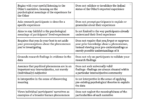Posts Tagged ‘
research ’
Mar 27th, 2019 |
By Marc Applebaum

I recorded this short talk in response to psychology students who asked “What does “interpretation” mean in phenomenological research?” Merleau-Ponty makes a critical distinction in the first pages of the Phenomenology of Perception between explicitation (making the implicit explicit) and expliquer (explaining). A bit more of the passage in Merleau-Ponty that I’m reading from is: “…all
[continue reading…]
Posted in Research |
3 comments
Tags: Applebaum, epoche, Merleau-Ponty, research
Jan 17th, 2019 |
By Marc Applebaum

Notes from a seminar I’m giving this weekend introducing phenomenology to psychological researchers. Those familiar with the tradition will see how the epochê, reduction, bracketing, striving for presuppositionlessness, and inquiring into the Other’s natural attitude meanings are represented here–as well the situatedness of research findings–reflecting a particular, psychological interest.
Posted in Feature, Praxis |
Comments Off on Phenom Research: What it is, what it isn’t
Tags: Applebaum, empathy, epoche, intentionality, intersubjectivity, reduction, research
Aug 21st, 2016 |
By Marc Applebaum

This is an expanded version of the presentation I gave at Meiji University in Tokyo on July 30, 2016, as part of a workshop Human Science and Phenomenology:Reconsidering the Approach to Experiences of Others, kindly organized by Dr. Shogo Tanaka of Tokai University and Kayoko Ueda of Kawasaki Univesity. Dr. Ueda, Dr. Masahiro Nochi of the
[continue reading…]
Posted in Human Science, Research |
Comments Off on Tokyo Presentation: Intentionality and Narrativity in Research
Tags: Applebaum, conference, hermeneutics, human science, Husserl, intentionality, research
Oct 25th, 2014 |
By Marc Applebaum

My latest article in the Indo-Pacific Journal of Phenomenology explores the psychological meanings of narratives through Husserl’s phenomenology in dialogue with Ricoeur’s hermeneutics. Ricoeur (1975) wrote, “On the one hand, hermeneutics is erected on the basis of phenomenology and thus preserves something of the philosophy from which it nevertheless differs: phenomenology remains the unsurpassable presupposition of hermeneutics. On the other
[continue reading…]
Posted in Feature |
Comments Off on Intentionality, Narrativity, Husserl & Ricoeur
Tags: Applebaum, hermeneutics, Husserl, research
Aug 26th, 2014 |
By Marc Applebaum

Dr. Scott Churchill joined Dr. Ferrarello and myself to present a two-day seminar on Empathy, Phenomenology and Hermeneutics at Saybrook in August 2014. Dr. Churchill is Professor of Psychology at the University of Dallas, and Editor-in-Chief of The Humanistic Psychologist. We wanted to share a selection of his articles and a link to an interview with him
[continue reading…]
Posted in Feature |
Comments Off on Scott Churchill on phenomenology, empathy, and embodiment
Tags: Churchill, conference, embodiment, empathy, hermeneutics, research
Jun 19th, 2014 |
By Marc Applebaum

In this chapter Magnus Englander explores Subjectivity, Memory, and Human Science as part of a festschrift volume honoring Amedeo Giorgi.
Posted in Feature |
Comments Off on Englander on Subjectivity, Memory, and Human Science
Tags: Englander, Giorgi, memory, research
Jan 30th, 2014 |
By Marc Applebaum

Dr. Ferrarello co-taught a graduate seminar in phenomenological psychology in January 2014 for doctoral students at Saybrook. She led students in a day-long reflection on the steps in qualitative data gathering and analysis which they had practiced during the preceding days, guiding their reflection on the meaning of the steps in the research process, and
[continue reading…]
Posted in Feature |
Comments Off on Ferrarello: Phenomenology as a psychological method
Tags: conference, Ferrarello, Husserl, research
Oct 7th, 2013 |
By Marc Applebaum

“It is one thing to sift the data of inner observation conceptually and to set them up as compounds, then to decompose these into ultimate ‘simple’ elements and to study through artificial variation by observation and experiment, the conditions and results of such combinations. It is quite another to describe and understand the units
[continue reading…]
Posted in Human Science |
Comments Off on Scheler, Merleau-Ponty, and “Essences”
Tags: Applebaum, empathy, Merleau-Ponty, Organizational phenomenology, research
Sep 29th, 2013 |
By Marc Applebaum

Here is a link to my 2010 contribution to the festschrift celebrating Amedeo Giorgi’s career in phenomenological psychology. I pose the question: why should the scientific status of our work be a compelling issue for the next generation of qualitative psychological researchers? I explore the criteria for science proposed by Giorgi, and discuss van Manen’s
[continue reading…]
Posted in Human Science, Lead |
1 Comment »
Tags: Applebaum, hermeneutics, research
Aug 1st, 2013 |
By Marc Applebaum

The way we creatively embody and express the traditions we inherit, whether philosophical or psychological, is inevitably shaped by our own history, background, and values. In my case, before I began my study of phenomenology I had already worked as a teacher and counselor. I’ve been a teacher of one kind or another since I
[continue reading…]
Posted in Feature |
4 comments
Tags: Applebaum, empathy, intersubjectivity, research









